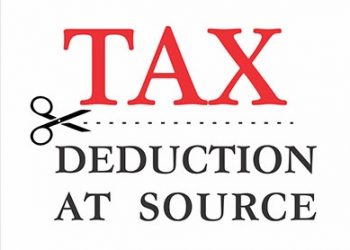The above judgement by Hon’ble Supreme court has put to more than 100 appeals/ case in this regard after a decade and the judgement has been passed in favor of taxpayer.
Let’s understand the background and issues involved in the above judgement:
The one issue in the above cases were whether computer software is to be taxed as royalty or sale of good i.e. business income?
Assessee’s contention was that such software were not covered by the copyright act and hence payment for same will not be covered under royalty neither by Income tax act nor by DTAA and the Amendment to section 9(1)(vi) by inserting explanation 4 cannot be applied retrospectively.
Whereas, revenue was of the belief that payment for software was payment for copyright content and hence taxable as royalty Income and the explanation 4 was just a clarification and hence can be applied retrospectively.
Some important points from Judgement of Hon’ble Supreme Court:
In the above judgement The Supreme Court mainly considered the provisions of the Copyright Act 1957 (Copyright Act), the Income Tax Act, 1961 (ITA), and the relevant DTAs in deciding the issue before it.
The Supreme court has categorized all the transactions covered in the above 103 appeals into 4 categories which are as under:
| Direct Purchase of Software | Purchase of computer software directly by a resident from a non-resident supplier or manufacturer; |
| Software purchased from Indian distributor | Purchase of software by a resident Indian from non-resident supplier, where resident indian is acting as a distributor or reseller and reselling to Indian end-users; |
| Software purchased from Foreign distributor | Purchase of software by a non-resident distributor from a non-resident supplier and reselling to Indian distributors or end-users; and |
| Software embedded in Hardware | Computer software bundled with hardware sold by non-resident suppliers to resident Indian distributors or end-users. |
After this The Supreme court analyzed a few End User license Agreement (EULA) [which we usually accept while installing any software] and distribution agreement.
As computer software are considered as literary work under Copyright act, hence sale of software to be considered as royalty as per the Income tax Act there needs to transfer of copyright and thus The Apex Court discussed transfer of Copyright as per Copyright Act which was as under:
In the case of a computer program, section 14(b) speaks explicitly of two sets of acts:
- The seven acts enumerated in sub-clause (a); and
- The eighth act of selling or giving of commercial rental or offering for sale or commercial rental any copy of the computer program.
The seven acts as enumerated in section 14(a) in respect of literary works are:
- To reproduce the work in any material form, including the storing of it in any medium electronically;
- To issue copies of the work to the public, provided they are not copies already in circulation;
- To perform the work in public, or communicate it to the public;
- To make any cinematographic film or sound recording in respect of the work;
- To make any translation of the work;
- To make any adaptation of the work; and
- To do, in relation to a translation or an adaptation of the work, any of the acts specified in relation to the work in sub-clauses (1) to (6).
Now, The court analyzed samples of distributor agreements and EULAs and delineated the following relevant facts:
- The distributor gets only a non-exclusive and non-transferable license to resell computer software;
- No copyright in the computer program is transferred to either the distributor or to the ultimate end-user;
- The end-user can use the computer program itself, but there is no further right to sub-license or transfer or reverse-engineer, modify, reproduce in any manner otherwise than permitted by the license to the end-user;
- The distributor pays the computer program’s price as a good, in a medium that either stores the software or embeds it in the hardware;
- The distributor does not get the right to use the product; and
- The end-user can only use the computer program by installing it in the computer hardware owned by the end-user and cannot in any manner reproduce it for sale or transfer.
The right to reproduce a computer program and exploit the reproduction by sale, transfer, or license is the computer program owner’s exclusive right.
In addition, making copies or adapting a computer program to use it for the purpose for which it was supplied, or to make back-up copies as temporary protection against loss, destruction or damage to use the computer program, does not constitute an act of infringement of copyright under section 52(1)(aa) of the Copyright Act.
Hence, The Court held that none of the above conditions are being satisfied in the above agreements and hence sale of such software won’t be considered as sale of copyright and hence cannot be considered as royalty income.
With regard to retrospective clarification inserted as explanation 4 to section 9(1)(vi) by Finance Act, 2012, court held that although this would increase the scope of royalty income and bring computer software under ambit of Income tax act as royalty income but such amendment cannot be made retrospective as this would harm the taxpayer and the taxpayer cannot be expected to do anything which was impossible earlier.
Thus, Supreme court held that such amendment cannot be implemented retrospectively.
Further, The Supreme court also observed various Treaties in question and held that majority of the treaties definition of royalty won’t cover software under royalty and although scope of royalty has been increased by the above amendment but this is just a unilateral amendment and same won’t affect tax treaties and taxpayer can take benefit of tax treaty wherever available.
Judgement:
Hence, Hon’ble Supreme Court ruled that any such software sale are just sale of goods as per Income tax act before Finance Act, 2012 amendment and not taxable as royalty either under Income tax act or Tax treaties.
Our Comments:
Although Supreme court has ruled in favor of assessee and did not bring it under the ambit of royalty however in the present scenario such software sale would be considered as royalty after insertion of explanation 4 to section 9(1)(vi).
Further, with the increase in use of internet and cloud based computing now majority transaction done by any person would fall under Category 1 and 4 mentioned above and in such case where a person is directly downloading software from online websites it will be very difficult to take TRC (Tax residency certificate) from such websites to take benefit of Treaty because without TRC one cannot take benefit of tax treaties and without taking benefit of tax treaties any payment for software would be considered as royalty and taxable under Income tax Act.
Since, such website will take full payment of Software, the TDS on such payment which will be at 20% (in absence of PAN) would be cost of the person taking software.
Further, with new amendment to equalization levy provision it was said that now e-commerce operators doing business in India will have to pay equalization levy in India and the scope of e-commerce operator in the above provision is very wide.
Hence, people were confused as to whether such software sale would be covered under both the provision i.e. royalty as per Income tax act and e-commerce operator as per Equalization levy.
However, a clarification has been made that any income which is taxable as Royalty or fees for technical service won’t be taxable under equalization levy.
The above judgement has been passed by Hon’ble Supreme court in case of Engineering Analysis Centre Of Excellence Pvt Ltd vs. CIT.
To read full judgement CLICK HERE.
Guidance on above article by:

CA Naman Maloo (C.A., B.Com.)
He is currently working as Partner – Direct Tax with Jain Shrimal & Co. in Jaipur having experience in dealing Assessments, Tax Audit, Tax planning for NRI, Business planning and consultation.
E-mail: naman.maloo@jainshrimal.in













